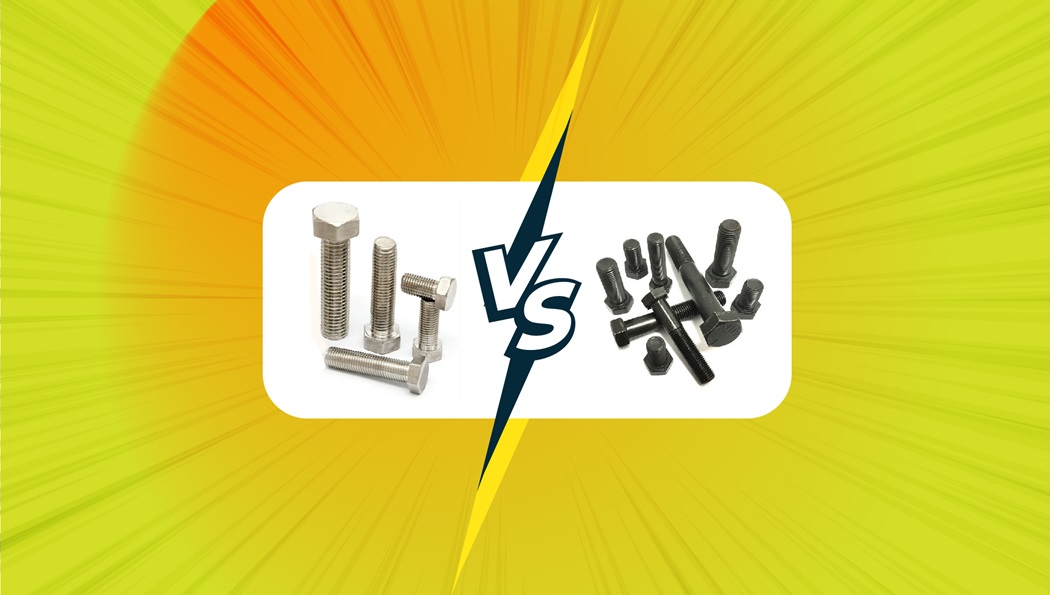Blog
Stainless Steel Fasteners vs. Carbon Steel Fasteners: What's the Difference?
Building and repairing vehicles and other machines can sometimes come down to the details. What may seem like a small choice could actually impact the longevity of the machine you are working on. It's important to know what materials you need for every situation. Consider stainless steel fasteners versus carbon steel fasteners. Both have a place in your machine, but they aren't necessarily interchangeable.
Keep reading to learn about the properties of each material, as well as when you need to use them. It could make a difference in the quality of your work.

Stainless Steel Fasteners: The Rust-Resistant Option
Stainless steel is one of the most commonly used materials in automotive construction and there's a very good reason why: it is extremely resistant to corrosion. Elements including chromium, nickel, and other metals are blended with steel to create a new alloy. The steel adds strength while the other elements create a protective layer on top that protects the steel from rust.
Because of this, stainless steel fasteners last a long time, even with exposure to moisture, salt, and chemicals. This makes them ideal for suspension systems, engine mounts, and exhaust systems where extreme conditions are common. This durability comes at a price. Stainless steel parts tend to be more expensive than other materials. It's also not as strong as carbon steel in certain high-stress circumstances.
Carbon Steel Fasteners: Strength and Versatility
Carbon steel is another popular option for fasteners. It has the ability to stand up to extreme stress without breaking and can be used in a wide variety of applications on the car. It's well-suited for applications including fastening engine components and chassis connections, as well as building the main structure of the car. The metal has a high tensile strength so it can support heavy loads without breaking. Carbon steel is also more cost-effective than stainless steel.
It's critical to remember that you may need to seal carbon steel. If it's not protected, it could rust or corrode. Plan on coating the metal and checking its condition on a regular basis so you can see signs of corrosion and replace parts before they break. You want to avoid using carbon steel fasteners in areas that will be exposed to a lot of moisture.
Choosing Stainless Steel Fasteners or Carbon Steel Fasteners
The choice of which type of steel fasteners are right for you will come down to the situation you need to use them. For applications where you need to support a lot of weight with a fastener that you know can hold up to the pressure, carbon steel may make more sense while also costing less.
Stainless steel fasteners will make more sense in applications that could involve water or other corrosive elements. The material is designed to prevent rusting, so the fastener won't degrade and break over time. Ultimately, both types of metals have their place in your repair shop, so make sure you have a good supply of each. Shop with ROGO Fastener to get a complete inventory of everything you need.
Sources:
- https://monroeengineering.com/blog/whats-the-difference-stainless-steel-vs-carbon-steel/
- https://www.britannica.com/technology/stainless-steel
- https://www.huyett.com/blog/stainless-steel-vs-carbon-steel-fasteners
- https://www.totalmateria.com/articles/Art60.htm
- https://markforged.com/resources/blog/carbon-steel-vs-stainless-steel
- https://www.worldstainless.org/Files/issf/non-image-files/PDF/Stainlesssteelautomotiveandtransportdevelopments.pdf
